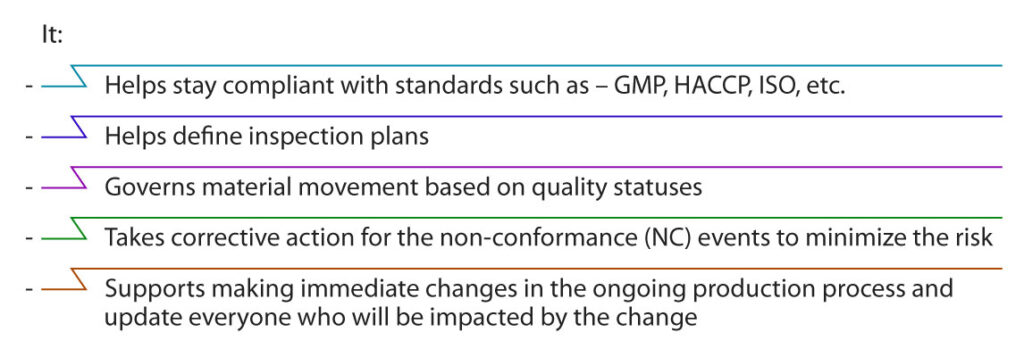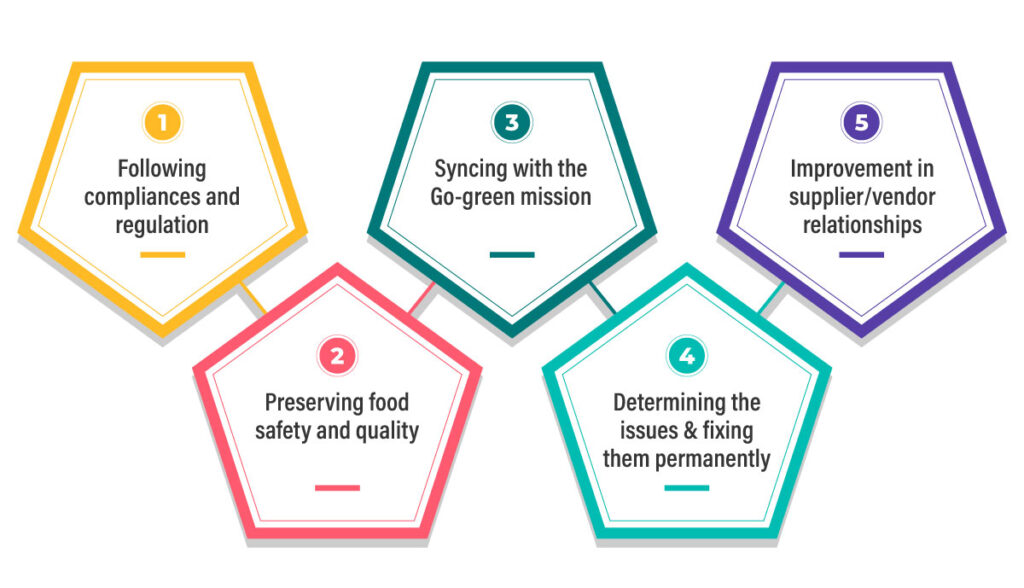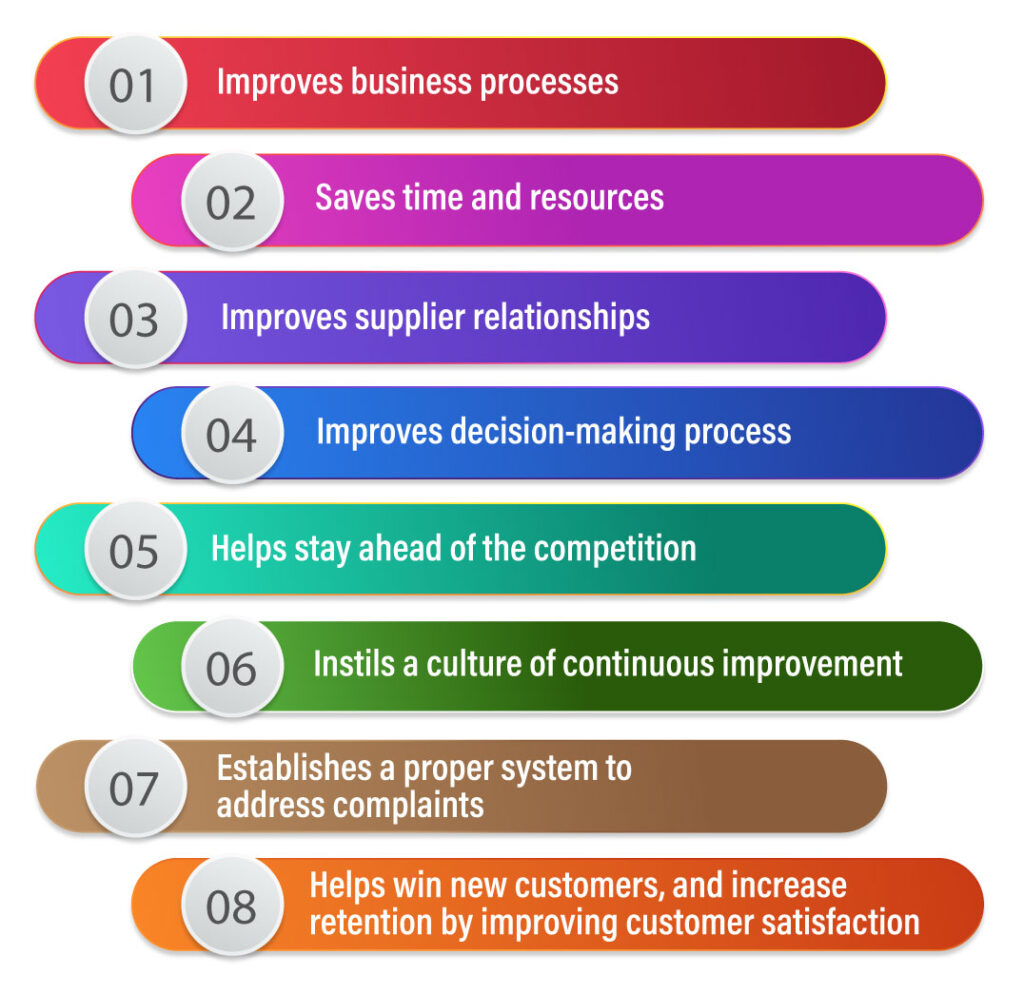Ultimate Guide for Quality and Compliance Management 2024
Quality and Compliance are two pillars of a profitable business. How to ensure good quality of products and 100% compliance to norms? Take a dive to know.
Overview:
Quality and compliance, these are not just terms. For organisations these are mandates for existence. Although they have very little connection with each other on broad level, they are highly connected on a deeper level. They both impact the product as whole.
Consumers today are quality conscious. At the same time, they are equally concerned to know if the products they use follow the norms and standards or not. Therefore, these two attributes can make or break reputation of an organisation.
If quality and compliance are so important, then obviously, there must be some effective way to ensure that the organisation follow quality and compliance norms.
In this blog we will discuss quality and compliance at length. We will try to find out the possible Quality and Compliance Management Software which can help organisations to deliver quality product and yet remain compliant to the norms.
Stay on the page for full information.
What is Quality?
Quality refers to set of qualities expected out of a product or a service. It is a mixed effect of various factors like design, production, efficiency, safety, economy, timeliness and many more.
In other words, quality is a measure of how close it is to specific standards. It also stands for measure of how well a product or service meets its purpose.
What is Quality Management?
It is the process of overseeing the activities, tasks, and processes to produce each time a service or a product with set of expected quality. There are four components of it, namely:
- Quality planning
- Quality assurance
- Quality control
- Quality improvement
The process of implementing all four is called Total Quality Management (TQM).
What is Quality Management System (QMS)?
It is a system to document policies, processes, and procedures for achieving quality goals.
Since quality is a key differentiator in global market, implementing QMS is important to ensure that the processes run effectively and reduce cost for an organisation.
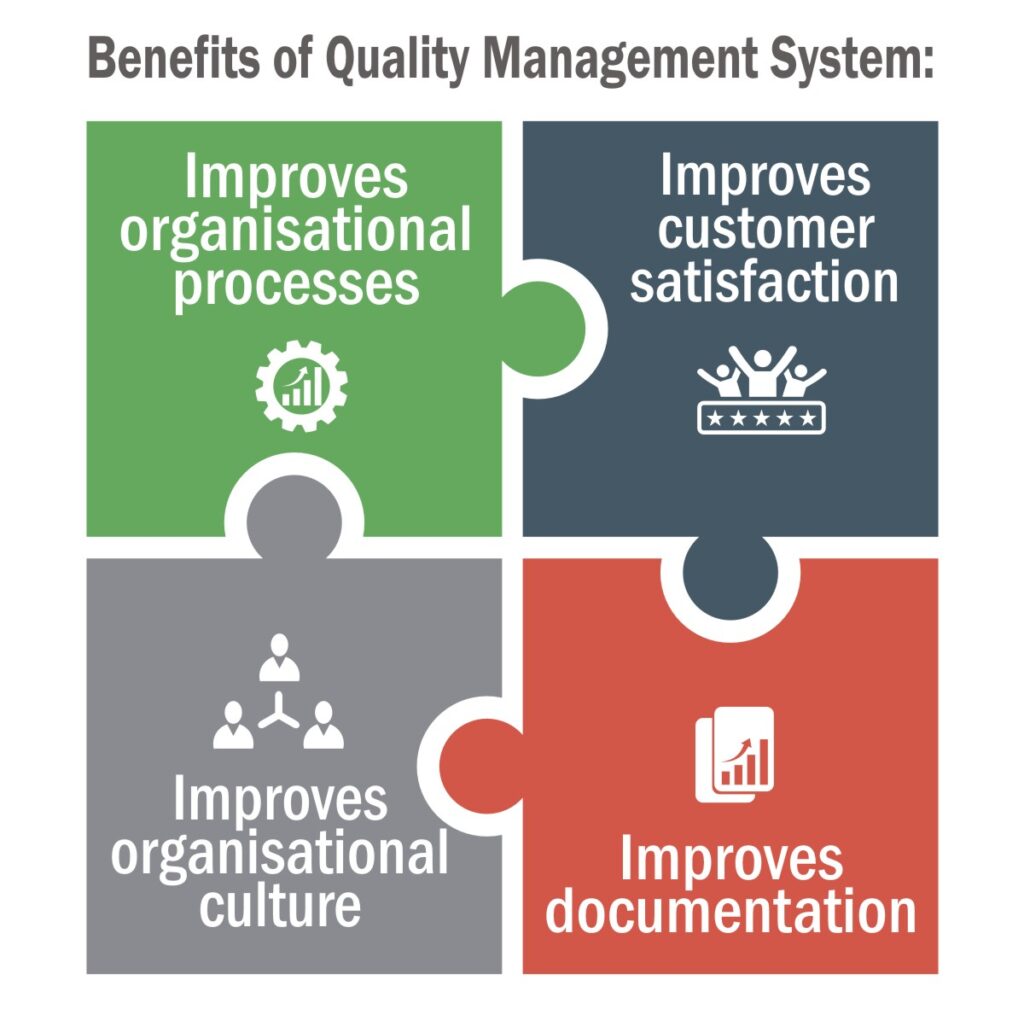
Fundamentals of Modern Quality Management Systems:
Outdated QMS are complicated and have limited capabilities to cater to the present-day requirement. Modern quality management systems are built on following fundamentals:
Unified application –
Fragmented and disconnected QMS system waste time and money. They put organisation at risk. Therefore, the QMS must have capabilities to unify all division of quality management, like document management, data analysis, training, and others.
One such QMS is QualityMaster. This is a unified application having all the modules integrated and well connected with each other. QualityMaster lets you:
- Schedule training
- Store and manage documents
- Manage risk
- Manage compliance and audits
- Take corrective and preventive action
Visibility –
In the fast-moving business times, businesses must be aware of any significant risk right at the moment when they are happening, and not once the damage is done.
Modern QMS should include real-time visibility into all quality activities to eliminate delays in quality analysis.
QualityMaster gives you a deep visibility. It lets you manage risk effectively. It is a full featured product designed to deal with unforeseen risk and help businesses to acquire a systematic approach to stay prepared against risks.
Based on visibility it provides, it flags nonconformance and allows you to take corrective and preventive actions to lower down such nonconformance in future. This way it mitigates possibility of triggering risk and nonconformance in future.
Control – Keeping important and sensitive data unprotected and accessible to everyone leads to many concerns. It can harm reputation of organisation and can cause financial loss.
Modern QMS such as QualityMaster allows you to give conditional access to data, leaving away unauthorized access. This way, it ensures data integrity.
Essential components of modern Quality Management Software Systems:
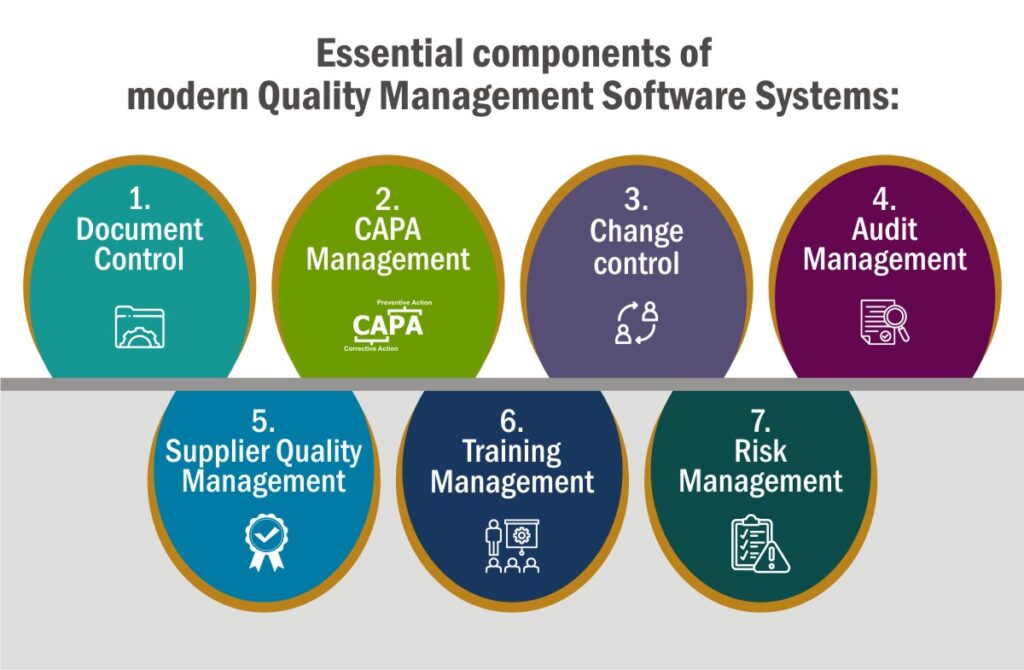
Modern QMS like QualityMaster consists of all the above said modules, providing organisations surety of quality.
Now, as we have discussed quality, quality management and quality management system at length, let us steer towards compliance, compliance management and compliance management software.
What is Compliance?
In general, compliance means following to the rule. It is the state of being as per the guidelines. Definition of compliance also encompasses industry regulations and government regulations.
Companies and organizations today are being more and more compliance aware, because of increasing industry compliance norms, governments laws and consumer awareness.
Overruling compliance might result in huge penalties, cost reputation of the brand and deflect customers to competitors.
What is Compliance Management System?
There are various software which help you manage compliance with various regulations, standards, and legal requirement.
The software automates, consolidates, and streamlines an organisation’s compliance meeting processes. These are called Compliance Management System.
A compliance management system:
- Manages compliance obligations of an organisation.
- Automates various tasks in organisation, such as managing contracts or providing auditing tool for internal controls including documentation, report generation, etc.
Aim of a compliance management software is to provide staff with better visibility of compliance requirements and minimize possibilities of your organisation to be penalized.
Benefits of Compliance Management System:
Compliance management system has multiple benefits, like:
- saving time by automating various processes like data collection, communication
- tracking changes in compliance requirements
- integrating the changed or updated compliance with the whole system
An efficient compliance management system like QualityMaster (which is also an effective QMS) has many benefits, like:
- Efficiently organise and manage information about regulatory environment of organisation.
- Easily identify which regulation apply to your organisation.
- Automating repetitive tasks related to regulatory compliance across various departments of an organisation.
- Saving from legal suites and penalties
QualityMaster: Quality Management System or Compliance Management System?
QualityMaster is a comprehensive Quality and Compliance management system. Loaded with the benefits of both, it is a Quality and Compliance software.
It is a modern software which makes sure that your products are good in quality and stick to the compliance.
By offering quality products, it helps attracting consumers and building brand image through its host of features like-
- Supports food-related labelling and reporting requirements falling under FDA, FSMA, GMP, and such along with flagging of ingredients if their nutritional properties in formula exceed established industry standards.
- Sticking to food labelling and reporting requirements, including GMP, FDA, GFSA requirements.
- Supporting chemical related labelling and reporting including GMP, SARA Type III, REACH, HAZMAT, SDS, MSDS, INCI requirements.
- Supporting special reporting of allergen and organic ingredients, as well as of Kosher and Halal products
- Maintaining master batch records and other key audit records.
- Graphical bi-directional lot traceability inquiries and recall reports.
On the other hand, by sticking to all the compliances, it is keeping penalties away from your organisation.
Thus, if you are a manufacturer and looking for a Quality and Compliance Management Software, QualityMaster is a perfect solution.
To explore how it can benefit your organisation, feel free to connect to our sales team or visit our website.



